Ph.D. in Finance and Real Estate program
Program length
- 90 credits
- Full time: 5 years
Application deadline
- January 1
Schedule format
- Semester
University of Florida’s Ph.D. in Finance
and Real Estate
The Ph.D. in Business Administration – Finance and Real Estate program prepares students to engage in productive scholarly research and teaching in the broad area of financial and real estate economics. Our graduates are typically placed with major research universities in the United States and abroad. The focus of the program is corporate finance, investments, financial intermediation, asset pricing, fintech, and behavioral finance
The department is primarily interested in placing students at research institutions to publish papers in top-tier journals (e.g., Journal of Finance, Journal of Financial Economics, Review of Financial Studies, and Journal of Financial and Quantitative Analysis). We treat students as colleagues and look forward to working with them on research projects as their skills develop. Our faculty are active in research and maintain an “open door” policy regarding visits. Our more successful students are those with a high degree of effective self-motivation.
Learn more
Melissa Hale
General Inquiries
Stuzin Hall 321
352-392-0154
Email Melissa
Yuehua Tang
Scott J. Friedman Professor of AI in Finance
Ph.D. & Graduate Coordinator
Stuzin Hall 317A
352-392-9985
Email Yuehua
Ph.D. in Finance and Real Estate facts and figures
Your academic research career is about to trend upward.
~$40K
Stipend plus a full-tuition scholarship available for Ph.D. candidates.
#14
In the world and # 12 in the U.S. among business schools for published research.
Financial Times
Top 20
Most-downloaded business school research paper on sustainability over the past three years: Ph.D.-coauthored paper “ESG Lending.”
SSRN for the Financial Times
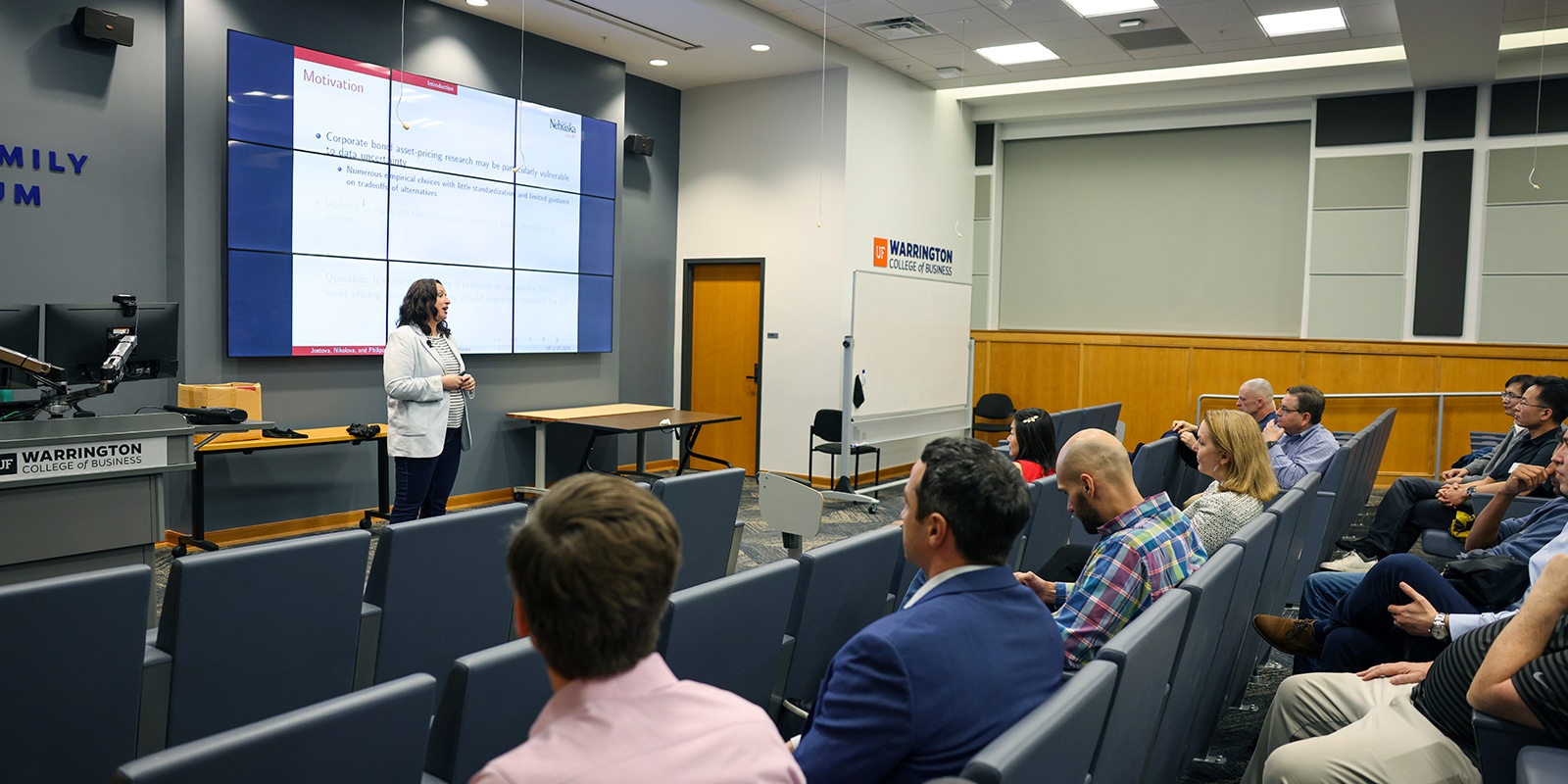
A career in academia
Being a professor is a pretty good job, but being a business school professor is much better than being a professor in another discipline.
Even if you are not planning on a career teaching in a business school, it may be a good place to start. Consulting firms, money management firms (including hedge funds), investment banks, technology firms, and government agencies all are willing to pay more for people who are experienced.
They have found that people who are good teachers are usually good at making client presentations, and that people who do successful academic research also tend to be good at coming up with strategies for making money or boosting profits or writing good consulting reports.
Admissions
The University of Florida’s finance and real estate Ph.D. program admits students for enrollment only in the fall semester. We typically enroll three students each year.
Application Deadline
The application deadline for fall admission is January 1st.
Application Process
UF Graduate Admissions determines eligibility and status for admission to the University of Florida. The Graduate School manages all the (electronic) paperwork, including your “official” transcripts. They also compute a standardized grade point average for your past work.
- $30 application fee for first-time applicants (can not be waived)
- Application for admission
- Official GMAT or GRE and TOEFL scores, if applicable (sent to code 5812)
- Official transcripts
- Academic Statement of Purpose
- Resume
- Three letters of recommendation
International students must submit credentials in the original language accompanied by an English translation and degree statement, if applicable. Plus:
- Florida Residency Affidavit U.S. Citizens (and U.S. Resident Aliens) who seek to qualify as a Florida resident for tuition purposes
- Conduct Declaration on the application
- Declaration of Financial Responsibility (international applicants only)
If scores cannot be sent electronically, they should be addressed to:
UF Office of Admissions
PO Box 114000 (201 Criser Hall)
Gainesville, FL 32611-4000
Financial information
The University of Florida’s finance and real estate Ph.D. program admits students for enrollment only in the fall semester. We typically enroll three students each year.
Students in our Ph.D. program receive five years of financial assistance in the form of a graduate assistantship (Research/Teaching) if they qualify and conditional on maintaining good standing in the program. The typical graduate assistantship is $43,000 per year plus tuition waiver and medical for up to five years conditional on satisfactory progress.
Graduate Assistantships provide financial support while students work part-time under the supervision of one or more faculty members in duties related to instruction, research, or professional service. Our Ph.D. assistantship is generous and competitive with those of the other top doctoral programs in Finance. Students also receive a tuition waiver, a research support budget of $2000 per year, and medical benefits. The assistantship requires 20 hours/week of research/teaching assistantship. During the five years, students are expected to teach 2-3 courses as part of the assistantship.
The retention of assistantships, research support, and other forms of financial support is contingent on satisfactory academic progress and satisfactory performance of assigned tasks. Therefore, the Department does not guarantee continuous funding for graduate students nor any minimum number of semesters of aid. Historically, however, most assistantships are extended for five years. In addition, students holding at least half-time graduate assistantships or fellowships paying are eligible for in-state or out-of-state tuition waivers up to the minimum credits required for full-time enrollment. Tuition waivers for each semester will be granted to qualifying assistants, provided they maintain a 3.0 GPA and are employed on or before the first day of classes through the end of final exams. Tuition waivers do not cover fees associated with registration (approximately $500 per semester).
Students are automatically considered for graduate assistantship as a part of their application to the Ph.D. program. There is no need to submit a separate application for a graduate assistantship. Students may, at their discretion, apply for other fellowships, grants, loans, or any other form of financial support for which they are eligible.
International students must have an F1 or J1 visa to receive an assistantship.
Tuition and expenses
Visit the Graduate Catalog financial information page.
Financial aid applications
Visit the Student Financial Affairs website for applications and information concerning educational loans.
Health insurance
Ph.D. students may enroll in GatorGradCare health insurance.

Curriculum
Learn more about our course schedule, prerequisites and research requirements.
Basic structure of the program:
- 1st year: take classes, pass 1st-year summer paper requirement
- 2nd year: take classes, finish comprehensive exam & 2nd-year paper
- 3rd, 4th, and 5th years: teach two classes in the three years, finish dissertation
During the first two-to-three years, students enroll in courses selected to provide the foundational theoretical and empirical skills required to undertake research in finance. Course work can be categorized into four areas:
- A major field of finance and real estate courses.
- A research foundation, which provides a core of research methodology common to financial and real estate studies.
- A supporting field (or minor), which allows the student to specialize in a field related to financial research.
- Breadth, which assures a broad knowledge of other business disciplines.
The breadth and research foundation courses are set by the Department. The supporting and major field courses are determined by the student in consultation with the Supervisory Committee. Major course work consists of at least sixteen credits chooses from the following courses:
- Financial Theory I
- Financial Theory II
- Corporation Finance
- Investments
- Empirical Asset Pricing
- AI and Machine Learning in Finance
- Financial Markets and Institutions
- Household Finance
In all cases, course titles are illustrative. Emphasis will be on developing research skills, and helping students understand how one selects and refines a research topic. Not all courses are offered annually. This means that doctoral students will be expected and encouraged to take some classes in their third year. Consequently, students from adjacent classes “mix” in some of the courses, augmenting the educational process by creating synergies within the doctoral student population.
The Department’s weekly Finance Seminar Series plays a major role in enhancing the student’s knowledge and creating an environment conducive to scholarly activity. In this seminar, departmental faculty and leading scholars from other institutions present working papers on their current research interests. All doctoral students are required to attend these seminar meetings.
During the summer of their first year, students will compose a research paper, which they will present to the department and graduate committee members in the fall of their second year. At the end of the second year (usually in June), students take a written comprehensive examination covering all of the Finance Ph.D. courses taken during their first two years in the program.
Before the end of the second summer, in April, students must submit a proposal for their second-year paper, which is a research paper on a topic of the student’s choice. By October, the paper must be a complete research document, such as one reads in academic finance journals. Depending on a student’s past experience, it may be appropriate to view this paper as suitable for submission to a journal. However, an acceptable second-year paper need not be publishable. Neither should it be viewed as the first step in selecting a dissertation topic.
An acceptable second-year paper will exposit an interesting finance question, collect appropriate data to test relevant hypotheses (if the paper is empirical, which most are), undertake careful econometric analysis of the data, and interpret the results. The purpose of this exercise is for the student to learn how to identify a researchable topic and execute it. As such, papers replicating or extending existing work are acceptable. Students must present (defend) their second year papers during the first month of the Fall semester. This presentation constitutes the oral examination required by the Graduate School for admission to candidacy, and hence will be evaluated by the student’s supervisory committee.
A background in business, finance, or statistics is not required for admission to the program because these courses can be acquired during the student’s normal course of study. However, if a student enters the program with an inadequate background in mathematics, the deficiency must be overcome as soon as possible. Minimum math statistics and skills include a full year of calculus and at least some study of matrix or linear algebra.
It is preferable to complete at least the calculus course before your first semester in the Ph.D. program.
Major Examinations
In addition to their normal course examinations, Finance and Real Estate doctoral students must pass two major examinations during their tenure in the program. Because the Department admits only well-qualified applicants, attrition from the program is not intended to be very high. Nevertheless, students who fail either examination will probably be asked to leave the program.
During the summer following their second year of course work, students take a written finance comprehensive examination, which covers the finance Ph.D. courses taken during their first and second years.
In addition, the University requires that every doctoral student pass a written and oral comprehensive examination to be admitted to candidacy. In the Finance/Real Estate program, this requirement is fulfilled by writing and presenting a “second-year paper”. During a student’s second year in residence, each student will select a research topic in consultation with their Supervisory Committee. Then, by the end of October in the student’s third Fall semester, they will submit a substantial, completed second-year paper.
This paper will constitute the written portion of the Comprehensive Examination. The oral portion of the Comprehensive Exam will be satisfied by a public presentation, in which the student presents their research to the Supervisory Committee and interested faculty and students. This presentation, based on a version of the paper that has been approved by the Supervisory Committee, must occur within one month of the final paper’s submission.
The Dissertation
Once the comprehensive exams have been passed, the student develops a dissertation proposal and selects a Dissertation Committee consisting of faculty having special knowledge of the topic to be studied. Upon successfully defending the results of this research, the Ph.D. degree is conferred on the student.
Review the Graduate Student Handbook for details on the requirements of the program.
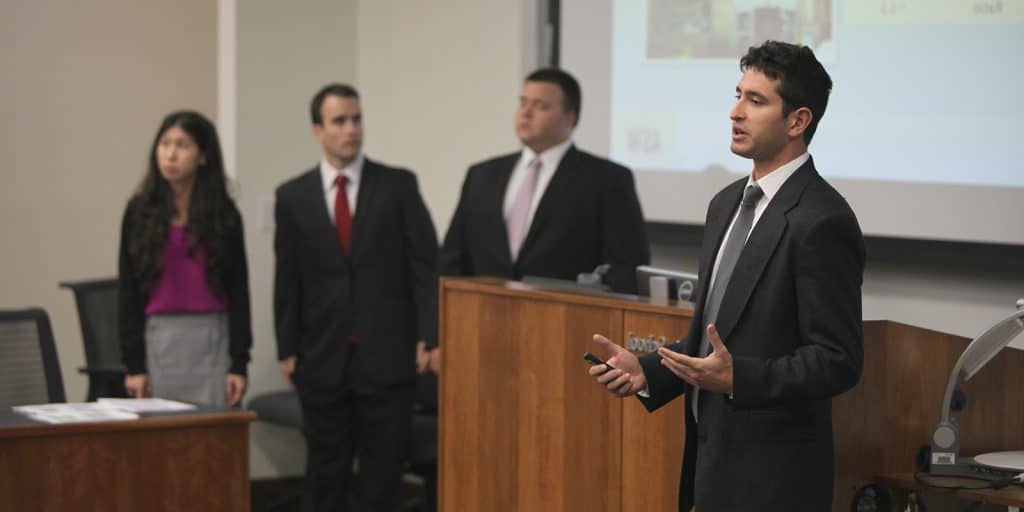
Ph.D. Pre-Seminar Workshop
The Ph.D. Pre-Seminar Workshop meets approximately every other week during the fall and spring semesters. In most of these workshops, Ph.D. students present and discuss two background papers for the finance seminar for that week, but occasionally Ph.D. students will present their own work.
Overview and objectives
The outside-speaker seminar series is an important part of the Finance Department’s intellectual life. The Pre-Seminar Workshop provides doctoral students with the opportunity to present and discuss background papers for the Finance Seminar Series, or alternatively to talk about their own research. The Workshop aims to (1) help students prepare for the upcoming seminar, (2) encourage them to read high-impact papers in finance, (3) allow them to improve their presentation skills, and (4) help students learn about fellow students’ work.
Expectations and responsibilities
Absent an emergency, it is expected that all Ph.D. students attend the Seminar Workshop. Since students are at different stages of the program, they will benefit in different ways from the Workshop. Whether familiarizing yourself with different areas of finance (for students in their first year of studies), learning more about an area that you are already interested in (for second and third-year students), or fine-tuning your presentation skills and keeping up with what is new in research (for students on the job market), the workshop should be useful for everyone. If you find that these seminars are becoming a waste of your time, please inform the faculty coordinator so that we can consider changes. We are doing this to help students, not burden them.
The Student Coordinator is responsible for scheduling, assigning papers to presenters, and tracking attendance. The Seminar Workshop Presenter(s) is (are) responsible for presenting the background papers and tying them to the Seminar Series paper. In addition, at the beginning of the fall semester, doctoral students working on their second-year paper or dissertation will be expected to present their own research. The workshop will last about 75 minutes, so please be mindful of the time when preparing and delivering presentations.
Those attending the Seminar Workshop are responsible for reading at least the introduction of the papers to be presented and providing meaningful contribution to the papers’ discussion.
Logistics
Seminar Workshop presenters will be selected on a volunteer basis. Unfortunately, it is often the case that background and seminar series papers are not available until the week of the Seminar Workshop, which sometimes makes it impossible to assign papers with significant advanced notice. Please let the Workshop Student Coordinator know if there are any research areas that you are particularly interested in presenting. If there are no volunteers, the Student Coordinator will assign papers to students that have missed workshops and those that have not recently presented (in this order). If you miss Seminar Workshops, you will be asked to do more work!
Discussion with Finance Seminar Series presenter
Following the Finance Seminar Series presentation, doctoral students are expected to attend a meeting with the visiting scholar. A Discussion Leader is assigned beforehand whose tasks include reviewing the presenter’s vita and current research, and preparing a set of pertinent and interesting questions to ask during the meeting. The Discussion Leader should meet briefly with the Faculty Coordinator to review relevant points of discussion and interesting topics. While the main responsibility for running the discussion lies with the Discussion Leader, everyone is expected to contribute as well. It is important to make a positive impression on our visitors while benefiting as much as possible from these meetings.
Research
Student-Faculty Interaction
The University of Florida is unusual in the extent to which faculty and doctoral students work closely with one another to develop each student’s research career. For example, our doctoral student Minmo Gahng worked closely with Professor Jay Ritter and their research has been widely cited by practitioners and financial media, including the Wall Street Journal and Bloomberg. This close working relationship between faculty and students continues well beyond the graduation. One of the three authors of the research, a professor of finance at the University of South Carolina, Donghang Zhang, graduated from our PhD program in 2002.
Another example of our doctoral student and professor interaction can be seen with Jing Lu and Professor Chris James. “We provide evidence that small banks responded faster to Paycheck Protection Program (PPP) loan requests and lent more intensively to small businesses than larger banks. Using community bank pre-pandemic share of deposits/assets as an instrument for the intensity of PPP lending, we find a negative and significant relationship between county level bankruptcy filings and PPP lending per small business. Overall, our findings suggest that community banks remain an important conduit for small business credit particularly during crises when a rapid response is required.” Read more in the article, “Community banks a key resource for small businesses when crises arise.”
Faculty Interests
The faculty’s depth of research achievement and quality of teaching constitute the strength of the program. The senior faculty are widely recognized as leaders in their contributions to the educational and research growth of the profession. For example, in a 2008 study of “top journal publications,” we came in 13th overall and third among public universities, and U.S. News ranked our research number 6-7 among public universities in 2009, 2011, and 2012. In addition, UF Department of Finance, Insurance and Real Estate faculty serve as officers of national professional organizations and as editors and reviewers at major finance and real estate journals. We are particularly proud of our junior faculty, who are actively researching new theories and expanding the knowledge of our profession.
Our faculty
Meet our eminent scholars, chaired professors and endowed professorship positions.

Christopher James
William H. Dial/SunTrust Eminent Scholar Chair
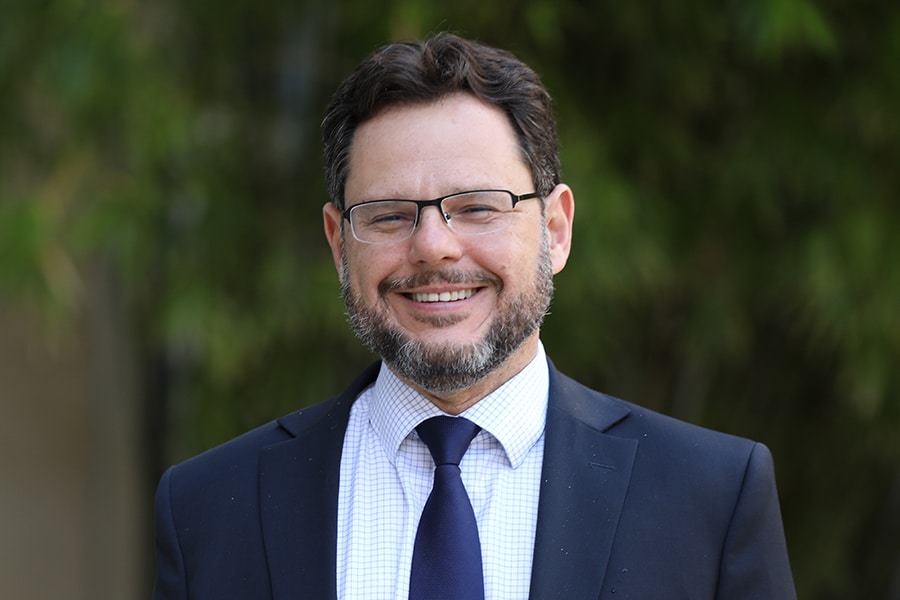
Murillo Campello
Joe B. Cordell Eminent Scholar Chair
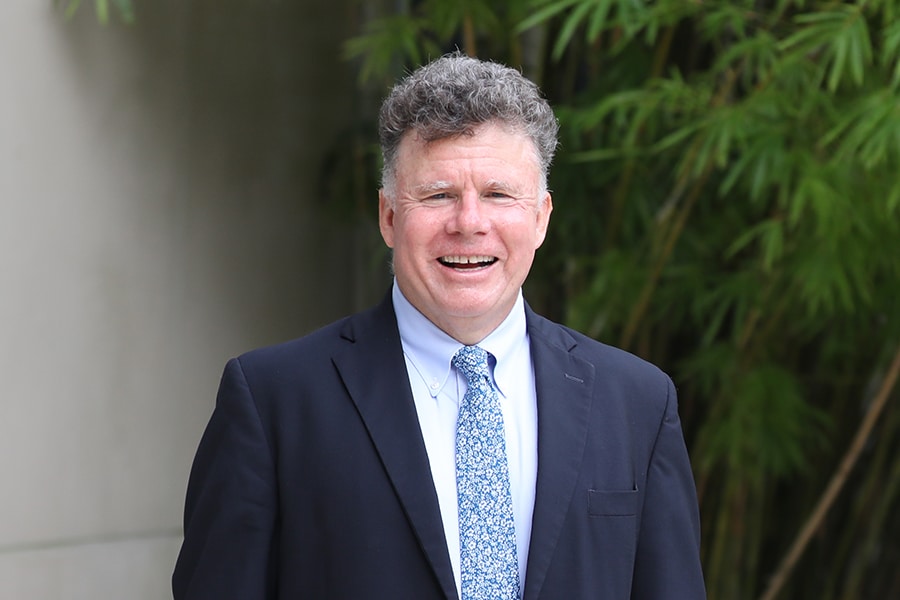
Joel F. Houston
Eugene F. Brigham Chair in Finance
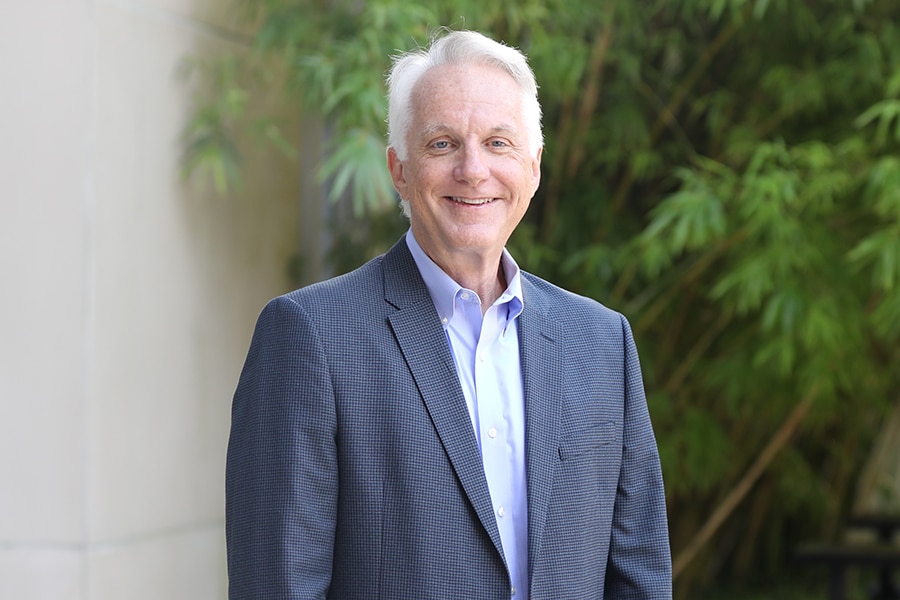
David C. Ling
Ken and Linda McGurn Professor

Andy Naranjo
Susan Cameron Professor

Mahendrarajah Nimalendran
John H. and Mary Lou Dasburg Chair
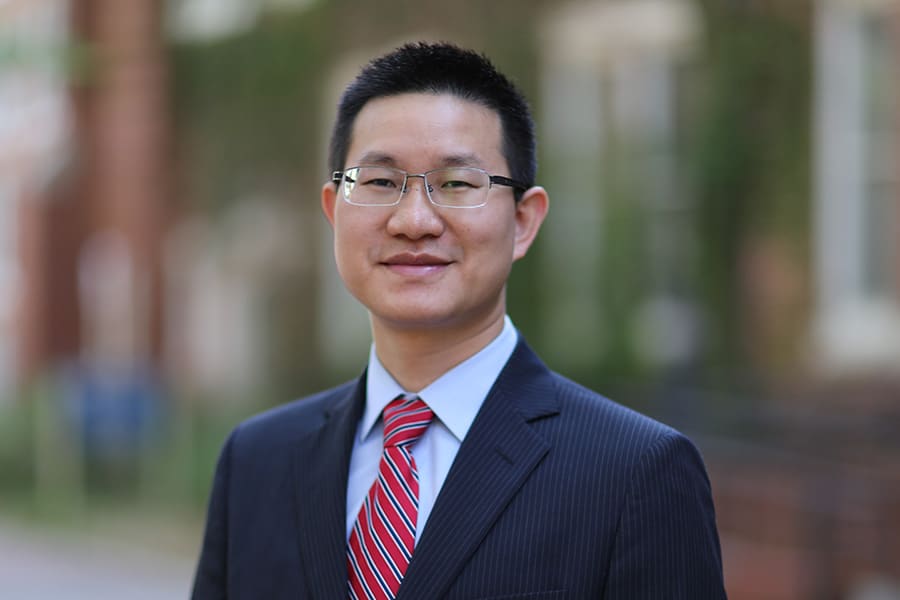
Yuehua Tang
Scott J. Friedman Professor of AI in Finance

David T. Brown
BB&T Professor of Free Enterprise

Tao Li
Bank of America Professor
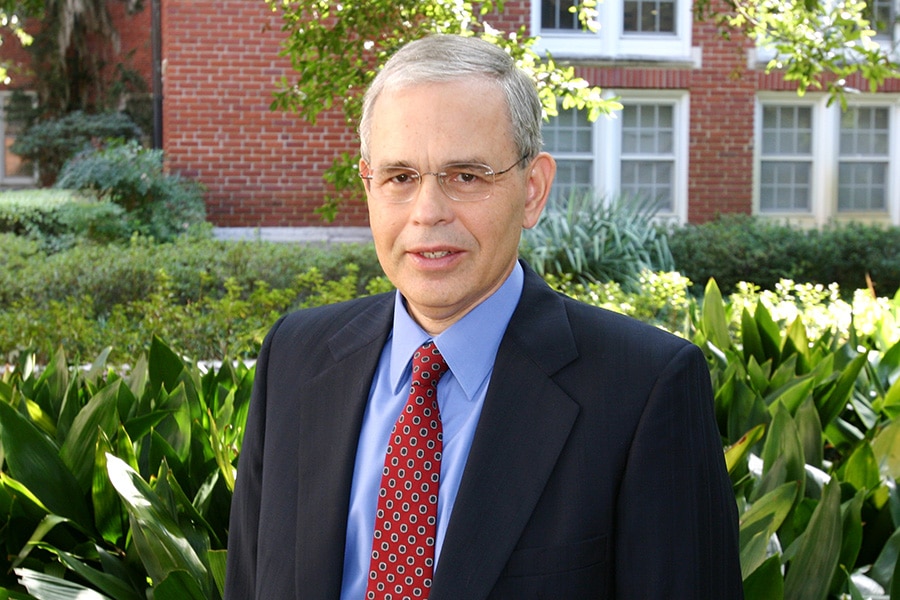
Miles B. Livingston
Emeritus Professor

Michael D. Ryngaert
Graham-Buffett Professor

Baolian Wang
Bank of America Associate Professor of Finance
Ph.D. students and alumni
Meet our current students, students who are available for hire and graduates of our program.
6th Year
Blake Jackson
Stuzin Hall 311
352-392-6386
Email | Profile | Homepage
Blake graduated from the University of Florida summa cum laude. His research interests include private equity, venture capital, entrepreneurship, private markets, and empirical corporate finance more broadly.
Boyuan Li
Stuzin Hall 311
352-392-6386
Email | Profile | Homepage
Boyuan received a B.A. in Mathematics-Economics from Reed College (2018) and an M.A. in Economics from the University of North Carolina at Chapel Hill (2020). His current research interests include AI/FinTech, innovation, and sustainability within the broader field of empirical corporate finance.
Pancy Li
Stuzin Hall 303A
352-392-5056
Email | Profile
Pancy is a fifth-year PhD student at the University of Florida. Her research areas are empirical corporate finance. Her research has been published in Strategic Management Journal and Critical Finance Review. Pancy received her PhD and master’s degrees from Tsinghua University and her bachelor’s degree from Hunan University.
4th Year
Beatrice Chang
Stuzin Hall 303A
352-284-978
Email | Profile
Beatrice (Hyeongyun) Chang holds a BA in Politics, Economics, and Policy and International Studies from Korea University (2020). She has experience of working as interns at the National Assembly Budget Office and Korea Deposit Insurance Corporation. She earned her Master’s degree in Finance from Seoul National University before joining the Ph.D. program in Finance at the University of Florida. Her current research interests include corporate finance, entrepreneurial finance, and ESG.
Charles Gavin Pearson
Stuzin Hall 311
352-392-6386
Email | Profile
Gavin earned his B.S. in Economics and M.S. in Finance from the University of Tulsa. Prior to joining the Ph.D. program he worked for nine years at Bank of Oklahoma. His current research interests include corporate finance, banking, and mortgage.
Guilherme Junqueira
Stuzin Hall 311
737-228-8128
Email | Profile | Homepage | LinkedIn | Twitter
Guilherme’s research interests are Entrepreneurial Finance, Innovation, and Corporate Finance. Before joining UF, he was as a Corporate Strategy Manager at Bimbo Bakeries USA. Guilherme holds an MBA from the UT Austin’s McCombs School of Business, a CFM from Insper Instituto de Ensino e Pesquisa, and a BBA from ESPM (Brazil).
Mingyin Zhu
Stuzin Hall 303A
352-392-5056
Email | Profile
Mingyin received her Bachelor of Science in Mathematics and Statistics with a minor in Computer Science and her Master of Science in Finance from the University of Florida. Prior to joining the PhD program, she interned at River Road Asset Management. Her current research interests include institutional investors and FinTech.
3rd Year
Divesh Pandey
Stuzin Hall 301G
352-392-350
Email | Profile
Divesh received his MA in Economics from Ashoka University, India (2020). Before joining UF (2023), he did 3 years of research assistantship in the field of education economics, household finance, and real estate. His current research interests include behavioral finance, asset pricing, and investments.
Jiawei Yu
Stuzin Hall 303B
352-392-584
Email | Profile
Jiawei received her BBA in Financial Management and MPhil in Finance from Renmin University of China. Her current research interests include asset pricing and behavioral finance.
Yuan Wang
Stuzin Hall 303B
352-392-4669
Email | Profile
Yuan received a B.Sc. in Finance from Zhejiang University. She then earned an M.S. in Management from Peking University and an M.S. in Finance from Baruch College. Her current research interests include investments and behavioral finance.
2nd Year
Aisulu Munkina
Stuzin Hall 303B
352-392-5844
Email | Profile
Aisulu received her BSBA in Finance, Magna Cum Laude in 2023 and her Master of Science in Finance in 2024 from the University of Florida. Her current research interests include corporate finance, mergers and acquisitions, and mutual funds.
Rui Guo
Stuzin Hall 301G
352-392-3500
Email | Profile
Rui received his Bachelor of Economics in Finance from the Guangdong University of Foreign Studies (2022) and Master of Arts in Economics from Duke University (2024). His current research interests include corporate finance, especially in private equity and venture capital.
Zikui Pan
Stuzin Hall 301G
352-392-3500
Email | Profile | CV | Scholarly Works
Zikui holds an MS in Data Analytics and Social Policy from the University of Pennsylvania and an MS in Finance from Jinan University. He has internship experience with IKEA, L’Oréal Group, GBA Capital, and Aleta Planet Fintech. His current research interests include corporate governance, the impact of COVID-19, and mutual funds.
1st Year
Zyad Abdellatif
Stuzin Hall 309D
(352) 392-0115
Email
Dima Al-Khatib
Stuzin Hall 309D
(352) 575-3006
Email
No students listed at this time. Please check back at a later date.
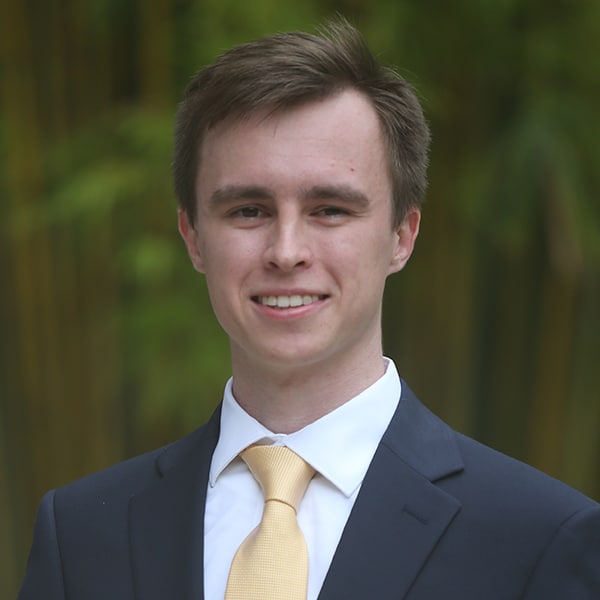
Blake Jackson
Stuzin Hall 311
352-392-6386
Email | Profile | Homepage
Blake graduated from the University of Florida summa cum laude. His research interests include private equity, venture capital, entrepreneurship, private markets, and empirical corporate finance more broadly.

Boyuan Li
Stuzin Hall 311
352-392-6386
Email | Profile | Homepage
Boyuan received a B.A. in Mathematics-Economics from Reed College (2018) and an M.A. in Economics from the University of North Carolina at Chapel Hill (2020). His current research interests include AI/FinTech, innovation, and sustainability within the broader field of empirical corporate finance.
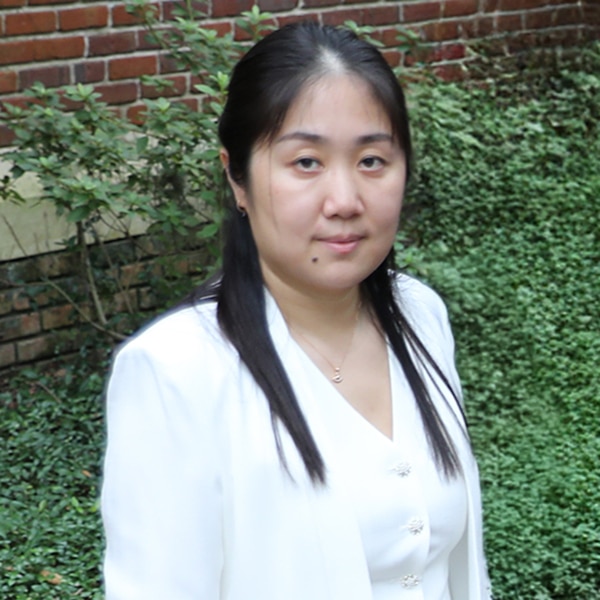
Pancy Li
Stuzin Hall 303A
352-392-5056
Email | Profile
Pancy is a fifth-year PhD student at the University of Florida. Her research areas are empirical corporate finance. Her research has been published in Strategic Management Journal and Critical Finance Review. Pancy received her PhD and master’s degrees from Tsinghua University and her bachelor’s degree from Hunan University.
2024
Jing Lu
Dissertation Chair: Chris James
Dissertation Title: Essays on Financial Markets
Initial Placement: Lecturer, University of New South Wales
Sami Mahmood
Dissertation Chair: Mark Flannery
Dissertation Title: The Long and Short of U.S. Bank Regulations: From the Great Depression to the 2023 Bank Failures
Initial Placement: Initial Placement: Postdoctoral Fellow, National University of Singapore
2023
Minmo Gahng
Dissertation Chair: Jay Ritter
Dissertation Title: Essays on Financial Economics
Initial Placement: Assistant Professor, Cornell University
Matthew Son
Dissertation Chair: Mahendrarajah Nimalendran
Dissertation Title: Essay on Big Data and Machine Learning in Finance
Initial Placement: Assistant Professor, University of South Florida
Cathy Zhang
Dissertation Chair: Mark Flannery
Dissertation Title: Essays in Mortgage Origination Fees
Initial Placement: Post Doctoral Associate, University of Florida
2022
Changhyun Ahn
Dissertation Chair: Joel Houston
Dissertation Title: Essays in Political Economy and Corporate Finance
Initial Placement: Research Assistant Professor of Finance, Chinese University of Hong Kong
Mustafa Emin
Dissertation Chair: Chris James
Dissertation Title: Institutional Investors and Private Debt
Initial Placement: Visiting Assistant Professor, Tulane University
Current Position: Assistant Professor, University of Alabama
Da Tian
Dissertation Chair: Jay Ritter
Dissertation Title: Essays in Financial Economics
Initial Placement: Assistant Professor, Nankai University (Tianjin, China)
Manvendra Tiwari
Dissertation Chair: Mark Flannery
Dissertation Title: Essays on Bank Opacity
Initial Placement: Assistant Professor, Saint Mary’s College in California
2021
Nicholas DeRoberits
Dissertation Chair: Andy Naranjo
Dissertation Title: Valuation Without Cash Flows: What are Cryptoasset Fundamentals
Initial Placement: Senior Software Engineer, Carbon Health Technologies
2020
Junho Oh
Dissertation Chair: Mark Flannery
Dissertation Title: Price Discovery in the Private Bond Market
Initial Placement: Research Assistant Professor, Hong Kong Polytechnic University.
Current Placement: Hankuk University of Foreign Studies (Seoul, South Korea)
Svetlana Petrova
Dissertation Chair: Andy Naranjo
Dissertation Title: Essays in FinTech: Cybersecurity Breaches, Corporate Responses, and Investment Behavior
Initial Placement: Assistant Professor in Finance, University of New Hampshire
2019
Derek Shan
Dissertation Chair: Joel Houston (co-chair) and Jay Ritter (co-chair) 2019
Dissertation Title: Essays in Financial Economics
Initial Placement: Assistant Professor, Fordham University
Current Placement: Assistant Professor, China Europe International Business School (CEIBS)
Guner Velioglu
Dissertation Chair: Chris James
Dissertation Title: Essays in Financial Economics and Private Information
Initial Placement: Assistant Professor of Finance, Loyola University Chicago
Amir Yousefi
Dissertation Co-Chairs: Mark Flannery and Mahendrarajah Nimalendran
Dissertation Title: Essays in Finance: “The Effects of Exchange Traded Funds on Corporate Decisions”
Initial Placement: Data Scientist, Facebook
2018
Jae Yung Kim
Dissertation Chair: Jay Ritter
Dissertation Title: “Essays in Financial Economics”
Initial Placement: Tulane University
Current Position: Assistant Professor of Finance, University of Exeter
2017
Max Dolinsky
Dissertation Chair: Andy Naranjo
Dissertation Title: “Essays on Firm Financial Policies: Measuring Industry Peer Effects and International Evidence on Firm Responses to Economic Policy Uncertainty”
Initial Placement: Central Michigan University
Current Position: Clinical Assistant Professor, University of Florida
Qie (Ellie) Yin
Dissertation Chair: Jay R. Ritter
Dissertation Title: “The Speed of Adjustment to the Target Market Value Leverage is Slower Than You Think”
Initial Placement: The Hong Kong Baptist University
Current Position: Sun Yat-sen University Shenzhen campus
Aaron Brauner
Dissertation Chair: Andy Naranjo
Dissertation Title: “Essays in International Corporate Capital Structure”
Initial Placement: State University of New York at Albany
Current Position: State University of New York at Albany
Charles Costello
Dissertation Chair: Christopher James
Dissertation Title: “Essays in Financial Economics”
Initial Placement: Cornerstone Research, Boston
Current Position: Cornerstone Research, Boston
2016
Yong (Jimmy) Jin
Dissertation Co-Chairs: Jay R. Ritter and Mahendrarajah Nimalendran
Dissertation Title: “Essays on Portfolio Theory and Application”
Initial Placement: The Hong Kong Polytechnic University
Current Position: The Hong Kong Polytechnic University
Rong (Diana) Shao
Dissertation Chair: Jay R. Ritter
Dissertation Title: “Closed-End Fund IPOs: Sold Not Bought”
Initial Placement: Oregon State University [2]
Current Position: Data Scientist, Facebook
2015
Yan Lu
Dissertation Chair: Mahendrarajah Nimalendran
Dissertation Title: “Essays in Alternative Investments”
Initial Placement: Assistant Professor, University of Central Florida [2]
Current Position: Associate Professor, University of Central Florida [2]
2014
Dominique Carlo Badoer
Dissertation Chair: Christopher James
Dissertation Title: “Essays in Debt Structure and Maturity Structure”
Initial Placement: University of Missouri [1]
Current Position: University of Illinois at Chicago
Leming Lin
Dissertation Chair: Jay Ritter and Mark Flannery
Dissertation Title: “Essays in Banking and Corporate Finance”
Initial Placement: University of Pittsburgh [1]
Current Position: Associate Professor, University of Pittsburgh [1]
Atanas Mihov
Dissertation Chair: Mark Flannery and Andy Naranjo
Dissertation Title: “Essays in Financial Economics”
Initial Placement: Federal Reserve Bank of Richmond
Current Position: University of Kansas
Stace Sirmans
Dissertation Chair: Andy Naranjo
Dissertation Title: “Credit Risk Effects in Corporate Finance & Investments”
Initial Placement: University of Arkansas [2]
Current Position: Auburn University
Matt Souther
Dissertation Chair: Mike Ryngaert
Dissertation Title: “Essays in Corporate Governance”
Initial Placement: University of Missouri [1]
Current Position: University of South Carolina
2013
Sabuhi Sardarli
Dissertation Chair: Andy Naranjo and Michael Ryngaert
Dissertation Title: “Essays in Retirement Plans and Mutual Funds”
Initial Placement: Kansas State
Current Position: Associate Professor, Kansas State
2012
Thomas Doellman
Dissertation Chair: Michael Ryngaert
Dissertation Title: “Two Essays in Corporate Finance”
Initial Placement: Saint Louis University
Current Position: Saint Louis University
Aaron Gubin
Dissertation Chair: Mark Flannery and Joel Houston
Dissertation Title: “What Decomposing Market-to-Book Ratios Can Tell Us About Firm Pricing and Safety”
Initial Placement: East Carolina University
Current Position: SigFig.com
Atay Kizilaslan
Dissertation Chair: Christopher James
Dissertation Title: “Asset Specificity, Industry Driven Recovery risk and Loan Pricing”
Initial Placement: Cornerstone Research, New York
Current Position: Cornerstone Research, New York
Xiaoding Liu
Dissertation Chair: Jay Ritter
Dissertation Title: “Essays in Corporate Finance”
Initial Placement: University of Oregon [1]
Current Position: Texas A&M University
Ani Manakyan Mathers
Dissertation Chair: Christopher James
Dissertation Title: “Strategic Credit Line Usage and Performance”
Initial Placement: Salisbury University, Maryland
Current Position: Salisbury University, Maryland
Xiaohong (Sara) Wang
Dissertation Chair: Mark J. Flannery
Dissertation Title: “Three Essays on Intermediary Lending”
Initial Placement: Northeastern Illinois University
Current Position: Northeastern Illinois University
2011
Benjamin Scheick
Dissertation Chair: David Ling and Andy Naranjo
Dissertation Title: “Investor Sentiment, Credit Availability, Information Dissemination, and Asset Price Movements”
Initial Placement: University of Georgia [2]
Current Position: Villanova University
Brian Walkup
Dissertation Chair: Michael Ryngaert
Dissertation Title: “Two Essays in Finance”
Initial Placement: University of Tulsa
Current Position: Rollins College
2009
Jennifer Itzkowitz
Dissertation Chair: Joel Houston and Andy Naranjo
Initial Placement: Seton Hall
Current Position: Seton Hall
Brandon Lockhart
Dissertation Chair: Mark Flannery
Initial Placement: University of Nebraska [2]
Current Position: Clemson University
Ozde Oztekin
Dissertation Chair: Mark Flannery
Initial Placement: University of Kansas [1]
Current Position: Florida International University
2008
Alice Bonaime
Dissertation Chair: Michael Ryngaert
Initial Placement: University of Kentucky [2]
Current Position: Associate Professor, University of Arizona [1]
Cem Demiroglu
Dissertation Chair: Chris James
Initial Placement: Koc University (Turkey)
Current Position: Koc University (Turkey)
Xiaohui Gao
Dissertation Chair: Jay Ritter
Initial Placement: University of Hong Kong
Current Position: Temple University
Laura Gonzalez-Alana
Dissertation Chair: Chris James
Initial Placement: Fordham University [2]
Current Position: California State University, Long Beach
2007
Tom Barkley
Dissertation Chair: Mahendrarajah Nimalendran and Andy Naranjo
Initial Placement: Syracuse University [2]
Current Position: Syracuse University [2]
Yunchun (Wendy) Hu
Dissertation Chair: Jay Ritter
Initial Placement: Zebra Capital
Current Position: Senior Researcher, Institute for Private Capital – Kenan Institute, UNC Kenan-Flagler Business School
Hugh Marble III
Dissertation Chair: David Brown
Initial Placement: University of Vermont [2]
Current Position: The College of William & Mary
Yvonne Reinertson
Dissertation Chair: Andy Naranjo
Initial Placement: Director, Strategic Capital Research, LLC
Current Position: Director, Strategic Capital Research, LLC
2006
Kristine Hankins
Dissertation Chair: Mark Flannery
Dissertation Title: “Two Essays on Corporate Finance”
Initial Placement: University of Kentucky [2]
Current Position: University of Kentucky [2]
Ozgur (Ozzie) Ince
Dissertation Chair: Jay Ritter
Dissertation Title: “The Partial Adjustment of IPO Offer Prices Is Not Due to Dynamic Acquisition”
Initial Placement: Virginia Tech [2]
Current Position: University of South Carolina [2]
Milena Petrova
Dissertation Chair: David Ling
Dissertation Title: “Do Buyer and Seller Motivations Affect Transaction Prices in Commercial Real Estate? Evidence from Tax-Deferred Exchanges and Other Conditions of Sale”
Initial Placement: Syracuse University [2]
Current Position: Syracuse University [2]
2005
Qing (Grace) Hao
Dissertation Chair: Jay Ritter
Dissertation Title: “Laddering in IPOs”
Initial Placement: University of Missouri at Columbia [1]
Current Position: University of Texas – Arlington
2004
Elvan Aktas
Dissertation Chair: Mark Flannery
Dissertation Title: “Essays in financial economics”
Initial Placement: Florida Atlantic University
Current Position: Professor, Valdosta State
Rick Borghesi
Dissertation Chair: Joel Houston and Andy Naranjo
Dissertation Title: “Essays in corporate diversification, market efficiency, and allocation of scarce resources”
Initial Placement: Texas State University
Current Position: Professor, University of South Florida
Rongbing Huang
Dissertation Chair: Jay Ritter
Dissertation Title: “Testing the windows-of-opportunity theory of capital structure”
Initial Placement: Kennesaw State University
Current Position: Full Professor, Kennesaw State University
Stas Nikolova
Dissertation Chair: Mark Flannery
Dissertation Title: “Two Essays in Financial Economics: Firm Risk Reflected in Security Prices”
Initial Placement: George Mason University
Current Position: University of Nebraska
Ralph Scholten
Dissertation Chair: Michael Ryngaert
Dissertation Title: “The Impact of the Changes in the Takeover Market on Managerial Entrenchment”
Initial Placement: Cornerstone Research
Current Position: Compass Lexecon
Glenn Williams
Dissertation Chair: Miles Livingston
Dissertation Title: “Drexel Burnham Lambert, Underwriting Fees, and Market Power”
Initial Placement: Florida Atlantic University
Current Position: University of Nebraska
2002
John Banko
Dissertation Chair: David Brown
Dissertation Title: Three essays in corporate bond contract design and valuation: “Putable debt in agency theory”, “The directionality of credit spreads revisited”, “Serial correlation in U.S. corporate bond excess returns”
Initial Placement: Northern Illinois University [2]
Current Position: Senior Lecturer, University of Florida [1]
Donghang Zhang
Dissertation Chair: Jay Ritter
Dissertation Title: “Why do underwriters allocate extra shares when they expect to buy them back?”
Initial Placement: University of South Carolina [2]
Current Position: Associate Professor, University of South Carolina
Lei Zhou
Dissertation Chair: Miles Livingston
Dissertation Title: Two essays fixed income securities: “The impact of Rule 144A debt offerings upon bond yields and underwriter fees”, “Bond ratings and private information”
Initial Placement: Miami University (Ohio)
Current Position: Jones Diedrich Mennie Endowed Prof. of Finance, Northern Illinois University [2]
2001
Kasturi Rangan
Dissertation Chair: Mark Flannery
Dissertation Title: “The changing face of bank capital structure (1986-1998): Regulators vs. markets”
Initial Placement: Case Western Reserve [1]
Current Position: Vice President and General Manager, ITT Corporation
2000
Larry Fauver
Dissertation Chair: Joel Houston and Andy Naranjo
Dissertation Title: “Firm value, diversification and derivatives usage”
Initial Placement: University of Miami [2]
Current Position: James F. Smith, Jr. Professor in Financial Institutions, Ray & Joan Myatt Faculty Research Fellow, Associate Professor, University of Tennessee [2]
Hui Yang
Dissertation Chair: Bob Radcliffe and Andy Naranjo
Dissertation Title: “Transactions costs, investor mobility, and fund manager turnover”
Initial Placement: Kansas State University [2]
1999
Hsuan-Chi Chen
Dissertation Chair: Jay Ritter
Dissertation Title: “Two Essays on Underwriter Compensation for Initial Public Offerings”
Initial Placement: Fujen University in Taiwan
Current Position: Full Professor at University of New Mexico [2]
Bart Danielson
Dissertation Chair: Mark Flannery
Dissertation Title: “Why Do Option Introductions Depress Stock Prices? Heterogeneous Beliefs, Market Maker Hedging and Short Sales”
Initial Placement: DePaul University
Current Position: Associate Professor at North Carolina State University [2]
C. Edward (Ted) Fee
Dissertation Chair: Chris James
Dissertation Title: “Financial Contracting in Closely Held Firms: Evidence from the Media and Entertainment Industries”
Initial Placement: Michigan State University [1]
Current Position: Chaired Professor at Tulane University [1]
Shawn Thomas
Dissertation Chair: Michael Ryngaert
Dissertation Title: “Firm Diversification and Asymmetric Information”
Initial Placement: University of Pittsburgh [1]
Current Position: Professor at University of Pittsburgh [1]
Richard Warr
Dissertation Chair: Jay Ritter
Dissertation Title: “The Decline of Inflation and the Bull Market of 1982 to 1997”
Initial Placement: Kansas State University [2]
Current Position: Professor at North Carolina State [2]
1998
Dave Harrison
Dissertation Chair: Chris James
Dissertation Title: “The Role of Lender Identity in Low-Income Lending”
Initial Placement: University of Vermont [2]
Current Position: Professor & Howard Phillips Eminent Scholar Chair in Real Estate, University of Central Florida [2]
1997
Jeff Jewel
Dissertation Chair: Miles Livingston
Dissertation Title: “The Role of Third Rating Agencies in the Market for Public Debt: Is Fitch Different from Moody’s and Standard & Poor’s”
Initial Placement: Lipscomb University
Current Position: Professor, Lipscomb University
Wei-Lin Liu
Dissertation Chair: David Brown
Dissertation Title: “Three Essays in Financial Economics and Law”
Initial Placement: Pace University
Current Position: Professor at Fudan University (China)
1996
David Marcus
Dissertation Chair: Chris James
Dissertation Title: “Effects of Capital Regulation and Information Asymmetries on Bank Lending”
Initial Placement: Cornerstone Research
Current Position: Vice President at Cornerstone Research
Sorin Sorescu
Dissertation Chair: Mark Flannery
Dissertation Title: “The price effect of option introductions: 1973-1992”
Initial Placement: University of Houston [2]
Current Position: Professor at Texas A&M University [1]
1995
Karin Roland
Dissertation Chair: Mark Flannery
Dissertation Title: “Profit Persistence in Large U.S. Bank Holding Companies”
Initial Placement: Office of the Comptroller of the Currency
Current Position: Dept Head and Professor of Finance, Valdosta State University
1994
Richard Borgman
Dissertation Chair: Mark Flannery
Dissertation Title: “Asset-Backed Securities: The Determinants of Yield Spreads”
Initial Placement: University of Maine [2]
Current Position: Professor at University of Maine [2]
Vinay Datar
Dissertation Chair: Bob Radcliffe
Dissertation Title: “Two essays on liquidity and its effect on market value”
Initial Placement: Seattle University
Current Position: Professor at Seattle University
Jon Garfinkel
Dissertation Chair: Chris James
Dissertation Title: “The Importance of Post Event Insider Trading: Evidence from Earnings Announcements”
Initial Placement: Loyola University Chicago [2]
Current Position: Henry B. Tippie Research Professor of Finance, The University of Iowa [1]
1993
Matt Billett
Dissertation Chair: Mark Flannery
Dissertation Title: “Leverage and the Takeover Market”
Initial Placement: FDIC
Current Position: Professor and Richard E. Jacobs Chair in Finance, Indiana University
Craig Bythewood
Dissertation Chair: Mark Flannery
Dissertation Title: “Risk Based Capital Standards and its Impact on the Market for Bank Control”
Initial Placement: Florida A&M University
Current Position: Florida Southern College
Steven R. Cox
Dissertation Chair: Chris James
Dissertation Title: “The Market Value of Voting Power and Dividends”
Initial Placement: Indiana University Kokomo
Current Position: Professor of Finance, Indiana University
Ivy Locke
Dissertation Chair: Miles Livingston
Dissertation Title: “The Effect of Securitization on the Conventional Mortgage Spread”
Initial Placement: Florida State University [2]
Current Position: Vice President for Business and Finance at Southeast Missouri State University
Eddie O’Neal
Dissertation Chair: Mark Flannery
Dissertation Title: “Why Electric Utility Stocks are Sensitive to Interest Rates”
Initial Placement: University of New Hampshire [2]
Current Position: Securities Litigation & Consulting Group
Footnotes:
- Membership in the Association of American Universities (top 62 leading research universities in the U.S. and Canada).
- A Carnegie Research I University (top 115 research universities in the U.S.). All U.S. AAU schools are Carnegie Research I schools.
Placement
Our Ph.D. program is built around placing graduates at reputable research universities worldwide. Our students have been placed at the following universities. Many of our graduates have enjoyed successful careers in academia and industry (e.g., litigation consulting firms).
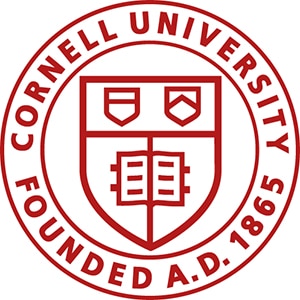














Contact us
Ph.D. in Business Administration – Finance and Real Estate
Warrington College of Business
University of Florida
Phone: 352-392-0153
Fax: 352-392-0301
Questions?
General:
Melissa Hale
Administrative Support Assistant II
Stuzin Hall 321
352-392-0154
Email Melissa
Program:
Yuehua Tang
Scott J. Friedman Professor in AI and Finance
Ph.D. & Graduate Coordinator
Stuzin Hall 317A
PO Box 117168
Gainesville, FL 32611-7168
352-392-9985
Email Yuehua